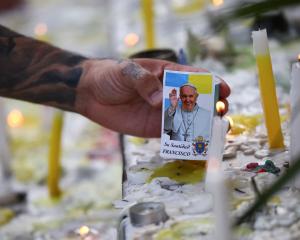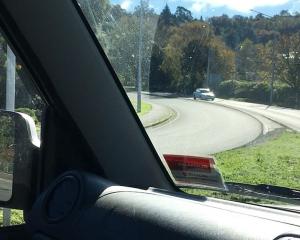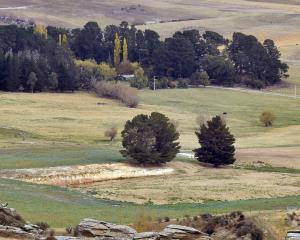
For the past three years I have often rhetorically asked: "who is the minister for the South Island?" (Opinion, ODT, 3.2.23).
As of January 20 it is James Meager MP, of the National Party.
He will not sit in Cabinet like the Minister for Auckland (population 1.5 million and 605sq km), Simeon Brown, who ranks fourth in the hierarchy.
The Minister for the South Island (population 1.2m and 150,437sq km) is outside Cabinet.
The tourism and exporting hub of New Zealand (we are still dependent on visitors and the export of agriculture and raw materials) is once more considered less important than the service economy of Auckland.
Nevertheless, progress is progress. To (mis)quote Mao: "every journey starts with a single step."
The task for Mr Meager is to evolve the role. Advocating on our behalf is important, yet he must define what the Minister for the South Island is.
I can offer advice — my PhD concerned the evolution of the Secretary of State for Scotland and the Scottish Office, a process of devolution repeated in Wales. The circumstances for both countries are similar to those of the South Island and provide lessons for New Zealand.
Scotland remains a separate country within the United Kingdom, even after union in 1707. While its MPs sat in Westminster, most powers in fields as diverse as education, health and criminal law remained with Scotland.
Prior to the creation of a Secretary of State for Scotland in 1885, these powers were held by "supervisory boards", appointed bodies of the great and the good that set out policy. With an inclusive electoral franchise, this became untenable and the government created ministerial roles.
In 1907 a permanent select committee, known as the Grand Committee, comprising all the MPs for Scotland was created to scrutinise Scottish legislation and regularly question Scottish ministers. Similar arrangements came into being for Wales in 1964, which was ruled by England since 1536.
We are not a union of nations like the UK. We are not a federal nation like Australia. We are highly centralised with a single government.
Yet, as I write this I am keenly aware that Auckland is over 1000km away from the view of the rolling hills of Otago Harbour outside my home. Wellington is 600km away and also on another island, smaller with more people than our own.
The centre of population of New Zealand is 100km southwest of Hamilton in Taharoa: 927km from Dunedin yet only 146km from Auckland. Fifty percent of the electorates are above this location.
We are not run by Wellington. We are run in the interests of voters in Auckland, who may not share the values of the South Island, let alone Hawke’s Bay, Taranaki or even Northland for that matter.
We are geographically separate from the rest of New Zealand. Our population is diverse and unique. We are distinct.
Our country may only have a population of 5m but it is bigger than the UK. Our cities and regions are spread out with unique local cultures.
A lack of devolved, local power and a bicameral parliament is not something to be proud of. It means the voice of people in Dunedin, Christchurch, Gisborne or New Plymouth are drowned out by the noise from Auckland.
The Minister for the South Island must evolve. My first piece of advice is to enshrine the role in Cabinet, creating associate ministerial portfolios for areas where a South Island subdivision exists.
For example, health, education, fire and emergency, policing and planning. I am not proposing ministers take control, but rather ensure central government is aware of our needs and guarantee local managers do their best on our behalf.
My second piece of advice is to create a permanent select committee of all MPs representing the South Island, ensuring democratic oversight and our voice is always heard.
My final piece of advice is keep it local: civil servants for the South Island should be based alongside those they serve.
Such simple arrangements would increase the voice of the South Island within government, but not change any existing constitutional arrangements.
One pressing need has to be addressed: a pledge that the South Island receives its fair share of government spending in proportion to its contribution to GDP.
That requires legislation which may alter our constitutional arrangements but is a change for the good. Our fair share of government spending is about natural justice and equity. It is the right thing to do.
The long walk to responsible government treating the South Island equally has begun.
• Duncan Connors is a former business academic.











